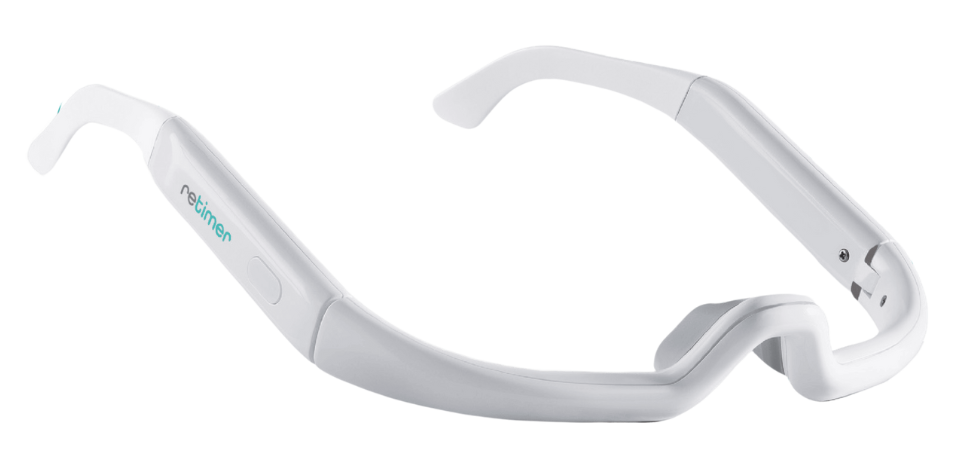We usually think of light as just something that helps us see and brightens our environment. However, for the human brain, light plays a much deeper role. It acts as a biological signal that regulates our sleep-wake cycles, hormone activity, emotional well-being, and even cognitive performance.
Over the past decade, morning light therapy has attracted growing scientific and clinical interest for its potential to improve mood and mental sharpness across diverse groups of people.
This is an area where science continues to uncover meaningful insights.
Natural morning light is nature’s reset button

Our bodies operate on an internal clock known as the circadian rhythm, a roughly 24-hour cycle that governs sleep, alertness, metabolism, and even mood. Morning light serves as a natural “reset mechanism” for this clock. When bright light enters the eyes, it activates specialized retinal cells that transmit signals directly to the brain, the body’s master clock.
This exposure suppresses melatonin, the hormone that promotes sleep, while increasing serotonin and dopamine, the neurotransmitters that drive focus, motivation, and emotional balance. Through this interplay, the body receives a clear signal: it’s time to wake up, stay alert, and engage with the day.
Light, therefore, is more than an environmental factor; it is a strategic tool with the power to set the tone for performance and well-being each day.
The Crucial Clockwork of Light Shapes Your Day
Timing is crucial. Light exposure early in the day anchors the circadian rhythm, ensuring that the body feels sleepy at night and alert in the morning. Late-night light exposure, by contrast, can delay the internal clock, leading to lethargy, poor sleep, and mood instability.
Morning light therapy works best when paired with regular wake-up times and a consistent routine.
A prevailing belief is that exposure to light has profound mood-boosting effects. Hence, it is a vital catalyst for supporting mental wellness.
From Mood Regulation to Mental Sharpness

Emerging research suggests that light therapy has broader benefits:
- Mood Enhancement
In a state of low mood, morning light has been shown to improve emotional well-being. By elevating serotonin and aligning the circadian rhythm, light therapy can help stabilize mood swings and reduce feelings of lethargy or apathy. - Sharper Thinking and Memory
Cognitive performance, particularly attention, working memory, and reaction time, appears to improve after consistent morning light exposure. Studies indicate that morning light boosts alertness and helps maintain concentration throughout the day, even in the face of sleep loss or disrupted schedules. - Stress Regulation
Morning light exposure influences the natural surge in cortisol that helps mobilize energy and focus for the day. A well-timed cortisol rise can make us more resilient to daily stressors and prevent the mid-morning energy slump.
An Alternative for the Absence of Natural Light

Access to natural light might not always be feasible, especially during the winter months when shorter days and longer nights limit exposure to daylight. This seasonal reduction in natural light, often associated with the “winter blues” or Seasonal Affective Disorder (SAD) can significantly affect mood, energy, and overall well-being.
In such cases, light therapy provides a reliable way to access the benefits of natural light beyond the sun. Among the available options, light therapy glasses such as retimer offer an effective and convenient solution. Designed to be worn like regular glasses, they emit a specific wavelength of light that mimics the effects of morning sunlight, stimulating the brain’s natural response. This helps improve sleep quality, regulate the circadian rhythm, and support overall well-being when consistent outdoor light exposure is not possible.
Pro Tip: Morning light therapy is generally considered safe. However, individuals with specific health conditions should consult a healthcare professional before beginning. Your health and safety remain the top priority, and making an informed choice ensures both effectiveness and peace of mind.
Morning Light for Focus Energy and Well-Being
In today’s world of indoor living, digital screens, and irregular schedules, our bodies can easily fall out of sync with the natural day-night cycle.
Morning light therapy provides a simple, non-invasive way to restore that alignment, acting like a daily mental sunrise that primes the brain for clarity, productivity, and emotional resilience. It is not a medical treatment reserved for those who are unwell, but a performance and well-being tool for anyone seeking more energy, sharper focus, and a brighter mood each morning. Just as we nourish our bodies with breakfast, it may be time to nourish our minds with light.
Interesting Reads
2. webmd.com/sleep-disorders/features/morning-light-better-sleep






